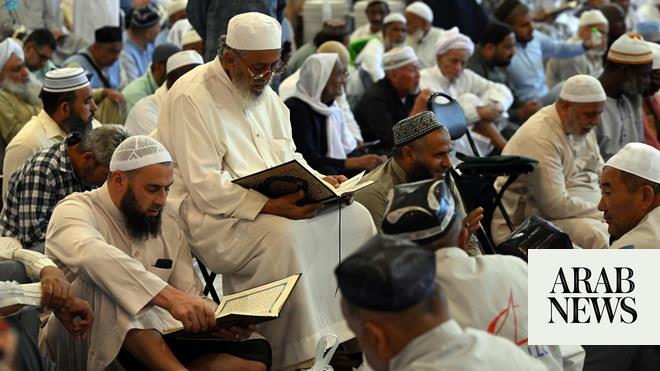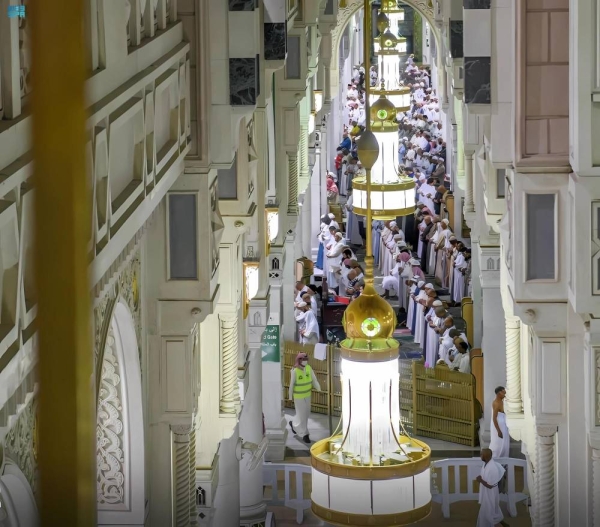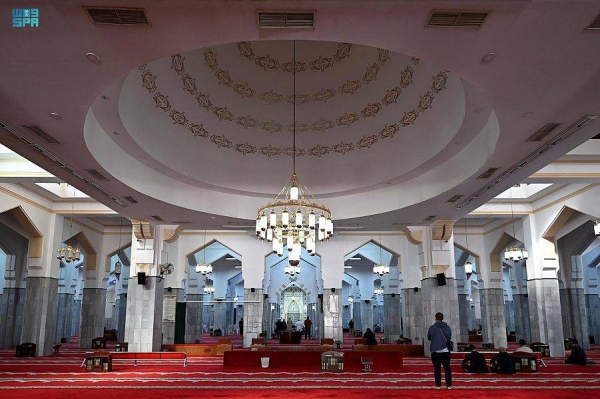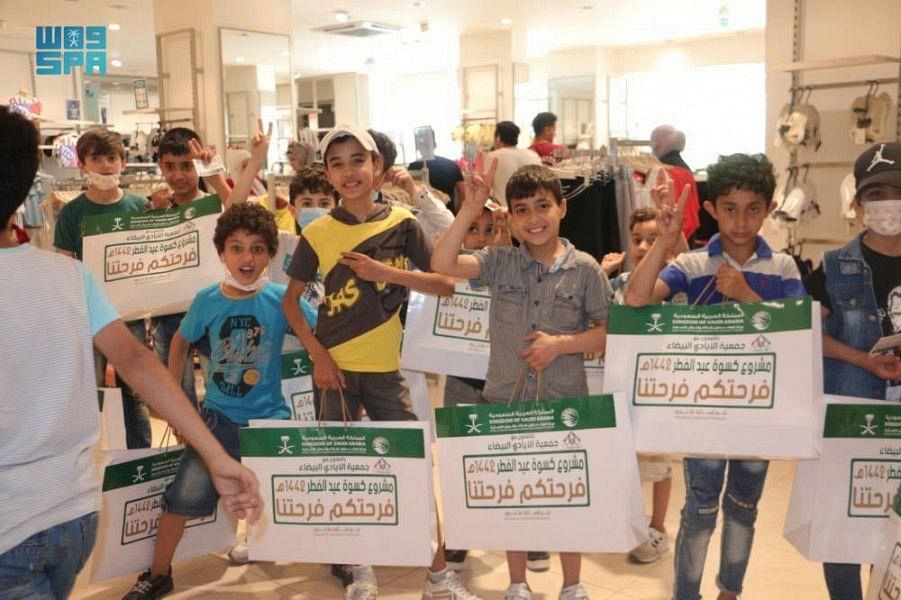
RIYADH: As Muslims across the globe prepare to celebrate the first of two eids on the Muslim calendar, many initiate the day’s festivities with a morning prayer.
The Eid Al-Fitr prayer has long surpassed its type as a sunnah (an action of the Prophet Muhammad) and positioned itself, emotionally, as a fardh (obligatory act) in the hearts of Muslims around the world and across the Kingdom.
Abdullah Hajjaj’s family stays up all night on the eve of Eid Al-Fitr for the sweet reclamation of morning coffee after a month of abstinence during Ramadan. He gets together with members of his father’s side of the family for the caffeine boost, handing out chocolates and taking photos, just before heading off to perform Fajr prayer, followed by the Eid Al-Fitr prayer.
Originally hailing from Madinah, their usual destination was the Prophet’s Mosque, but due to the congestion of crowds and difficulties in coordination and reaching the location, they now perform the two prayers in Al-Qiblatain mosque.
He told Arab News: “Praying at Al-Qiblatain doesn’t feel too different as long as we go there together as a family.”
“Later after prayer, we go back to my uncle’s house for breakfast. This has been a tradition in our family for over 40 years, since the days of my grandparents, God rest their souls,” he said.
Hajjaj recalls the morning breakfasts he would enjoy with family, composed of recipes passed down from his grandparents. As the sun rises before prayer, the sounds of Eid Takbeer, the act of chanting the name of Allah in unison, echo in the wind, creating a feeling of joy and harmony among the people.
Continuing this routine even though the prayer is not an obligatory religious act means continuing over four decades of family tradition. It is not only an act of faith, but a declaration of a strong familial bond.
“Being originally from Madinah, the home of the Prophet Muhammad (PBUH), we always follow his teachings and try to pass them to the next generations. By praying together, we ensure this tradition is kept intact,” Hajjaj said.
Riyadh-based Atheer Al-Khudairi’s family arrives at the local neighborhood mosque already dressed to the nines in their Eid clothing. They hand out eidi, or money, and candy to the children and say hello to the neighbors just before prayer commences.
She told Arab News: “You can sense the energy in the air during Eid prayers. Everyone’s happy and celebrating…There’s always a cool wind in the morning. Everyone’s on good vibes.
“This is what makes us feel like Eid has started. Before and after prayer, we start sending out texts and making calls to our family and friends.”
Afterward, they return home for a potluck breakfast with contributions from aunts and uncles, just before sinking into a “food coma” for the rest of the afternoon. She recalls her mother bringing the latest trending dish trend to the table, such as cheese platters and “the circle of happiness,” a dish made with Halloumi cheese, vegetables, eggs, and mugalgal meat all laid out in rings.
Former Jeddah resident Shaima Shamsi’s festivities began as soon as Eid Al-Fitr was announced. The day the holiday falls on is tentative, with each region confirming its celebration day with the sighting of the moon.
The night before, her mother would lay out the milk, cream, Indian vermicelli, dates, nuts, and spices, to start preparing sheer khurma — an indication that Eid is just a sunrise away. While the parents would go to bed after a rushed night of errands and last-minute preparations, the children stayed up in anticipation.
Al-Amoudi Mosque in Jeddah’s Al-Khalidiyyah district was the destination of their loved ones.
Shamsi told Arab News: “Everybody would go to that mosque as well, so it was a collective decision where you begin your Eid by being around people who are important to you, all doing the same thing.
“There were sweets given out throughout the mosque. Little girls and boys all dressed up in their adorable dresses and thobes, everybody wearing their most beautiful abayas. There’s a calmness in the entire room that I feel like I remember very clearly.”
As a child, expecting abundant goodie bags, sweets, and small amounts of money made the whole affair worth the wait.
“As I grew older, it was nice to take those chocolates and give them out to younger kids, so we always went to the mosque with something as well,” Shamsi said.
After coming back from Eid prayer, breakfast was served at home in the company of their closest neighbors, followed by an afternoon nap in preparation for the night’s official celebrations.
Keeping up with these small traditions is part of embracing community, she believes. “Coming together is what makes it so memorable.”








